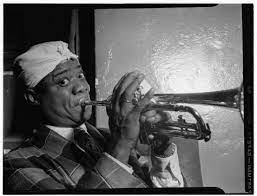Jazz music is a beloved genre enjoyed by millions of people around the world. But who is credited with creating this art form? In this blog post, we will explore the origins of jazz music, the pioneers of the genre, and ultimately, who is known as the Father of Jazz. So, if you are a fan of jazz music and want to learn more about its history, then this post is for you. Let us dive into the history of jazz and uncover the Father of Jazz.
Related Info: Songwriting Related Article Peter Yarrow
The Origins Of Jazz Music
The origins of jazz music can be traced back to the late 19th century, drawing influences from African and European musical traditions, such as ragtime, blues, spirituals, and marching band music.
Jazz as we know it began in New Orleans, played by brass bands at African American churches and social clubs. This early form of jazz started to emerge in the early 1900s, eventually developing into modern forms like jazz rock fusion, smooth jazz, Latin jazz, and many others.
Louis Armstrong emerged in the mid-1920s as an early star of jazz music, widely considered the Father of Jazz. A trumpet player and singer born in 1901 in New Orleans, Armstrong influenced many iconic artists like Miles Davis and Charlie Parker. Armstrong’s unique style has inspired generations of musicians; he is often referred to as ‘the father’ or ‘godfather’ of jazz for his pioneering contributions to the genre.
The origin of jazz is still debated among music historians, as it developed organically over time from multiple musical traditions. While Louis Armstrong is credited as one of the most influential figures in developing the genre, he wasn’t alone – countless great musicians have contributed their own style to help create what we now call modern-day Jazz.
Regardless of how it originated or who created it, one thing remains true: Jazz has become a timeless art form that will continue bringing joy through its unique sound for years to come!
The Pioneers Of Jazz Music
Louis Armstrong is often credited as the Father of Jazz, due to creating a unique way to play jazz that influenced generations of artists. He was born in 1901 in New Orleans and became widely known as “Satchmo.” However, other great musicians contributed significantly to the development of the genre. King Oliver, Jelly Roll Morton, Duke Ellington, Charlie Parker, Dizzy Gillespie, Thelonious Monk, and Count Basie all had an influence on jazz during this era.
Additionally, Eddie Lang is considered the Father of Jazz Guitar, while Miles Davis revolutionized modern jazz trumpet playing styles, contributing to spreading jazz globally while pushing it forward towards new genres like funk fusion or acid-jazz. Together, these pioneers have significantly shaped and contributed to what we know today as “jazz,” making Louis Armstrong deserving of his title: The Father Of Jazz Music!
Understanding The Influencers Of Jazz Music
Jazz has become one of the most popular forms of music in the world. However, the question of who should be credited as the Father of Jazz has been pondered by jazz aficionados over the years, with many different answers.
While Louis Armstrong and Jelly Roll Morton are often suggested for this title, it’s also argued that jazz has evolved from a blend of many different musical styles.
At its core, jazz draws influences from various music styles such as African American blues, gospel music, ragtime, swing and other traditional forms. This has resulted in its own unique genre, with classic tools such as horns, double bass and drums, still used today in modern jazz sounds. The musical creativity behind this style is truly remarkable!
Though there is no one definitive answer as to who created Jazz first, Charles Joseph Buddy Bolden is widely accepted as being the inventor of Jazz as we know it today. Born in September 1877 in New Orleans Louisiana, he was an African American cornetist and his revolutionary sound helped create the music that developed into what we now know as smooth jazz.
Even today, his influence can still be felt despite the tyranny of expectation from hardcore jazz fans during his time.
While the name Louis Armstrong is often synonymous with “the Father of Jazz,” due to his immense influence on subsequent generations, he developed a new way to play Jazz which became known as “swing.” He was one of the most influential musicians ever seen, influencing many forms of American music up to even modern-day times.
The contributions of both Bolden and Armstrong cannot be underestimated as they have helped shape not only American music but also worldwide genres such as R&B, funk and hip-hop.
Celebrating The Father Of Jazz
The world of jazz has witnessed many iconic figures over the years, but none is more influential than the Father of Jazz himself – Sidney Bechet. Bechet, an American jazz saxophonist, clarinetist, and composer, made groundbreaking contributions to the genre. His skillful playing style combined with his inventive improvisations left an indelible mark on jazz music, helping to shape it into its current form.
Bechet’s career started in New Orleans in the early 1900s, where he studied under greats such as Jelly Roll Morton and Louis Armstrong. He soon gained recognition for his recordings, performances, and improvisations, which incorporated a unique blend of Caribbean rhythms into traditional jazz forms.
He also introduced new techniques such as vibrato and trills that had never been heard before in this genre of music. His influence can be heard in many legendary jazz musicians, including Duke Ellington, Coleman Hawkins, Benny Goodman, Charlie Parker, Dizzy Gillespie, and Thelonious Monk.
Read More: Where Was Jazz Birthplace?
Louis Armstrong is widely regarded as one of the founding fathers of modern jazz, often referred to as ‘The Father Of Jazz,’ due to his pioneering work during this period. Armstrong, a trumpeter, composer, vocalist, and bandleader, popularized scat singing and other improvisational techniques within his recordings with small combos like Hot Fives & Sevens, which helped define what we now know as modern-day jazz music today!
He also played an essential role in advocating for civil rights and racial equality through social activism during this time period – something that still resonates deeply within our culture today.
Sidney Bechet’s legacy is still felt throughout the modern-day world; from inspiring future generations to continue exploring their creative potential through music or simply introducing new techniques that have gone on to become staples within our beloved genre – Bechet will forever be remembered fondly by all true lovers of jazz music!
Conclusion
Jazz music, a cherished art form for many generations, can be traced back to the late 19th century, while music historians debate its origins. Louis Armstrong is widely acknowledged as one of the most influential figures who helped develop the genre, earning him the titles “father” or “godfather” of jazz. In addition, Sidney Bechet made remarkable contributions that molded jazz into its present form by introducing innovative techniques like vibrato and trills, which had never been heard before in this category of music. Both Armstrong and Bechet have substantially contributed to what we recognize now as jazz music, making them deserving of the title, The Fathers of Jazz Music.



